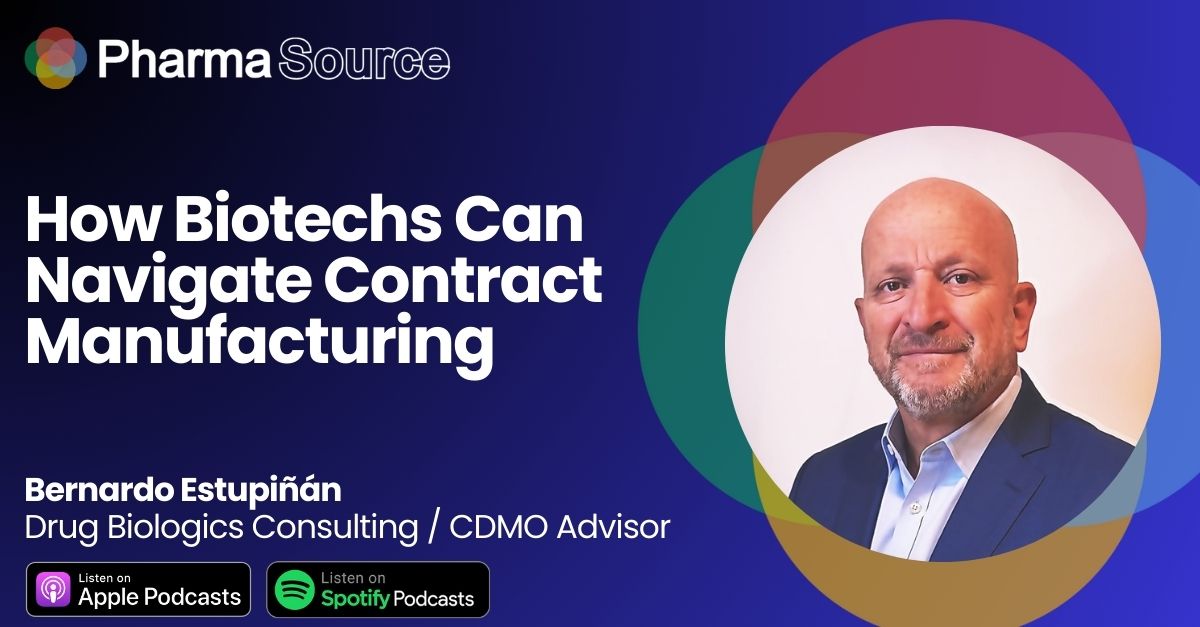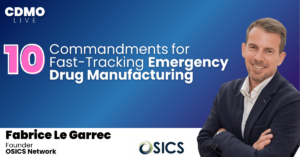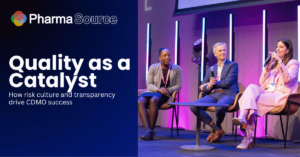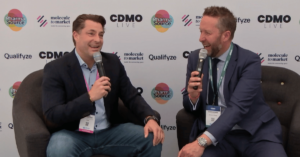Bernardo Estupiñán has a career spanning chemistry and business development, and now working as a consultant to guide companies developing new biopharmaceuticals through contract manufacturing.
In this interview he shares his advice for how biotechs can successfully navigate the contract manufacturing landscape to bring new products into the clinic on budget.
“The biggest challenge? Money. “ says Bernardo.
Developing a biologic product and taking it into clinical trials is an expensive endeavour. Many companies underestimate the costs involved.
According to Bernardo, a biotech should plan for at least $5 to $8 million and dedicating approximately two years is essential to transform that “little vial with your product” into a format suitable for clinical trials.
Clinical studies themselves are completely separate costs, he adds.
Key considerations for Biotech contract manufacturing
1. Manufacturing location matters
Choosing the right manufacturing location is critical, says Bernado.
While it’s possible for a client on the West Coast to collaborate with a service provider in Europe, a time zone difference of nine hours can impact communication. Productive calls require early mornings or late nights, so biotechs must weigh convenience against efficiency.
Small biotech that have one asset need to make sure that the service provider is close enough to be able to keep in regular contact.
“One of my early clients put it into perspective. He said ‘I have one project that I need to get to the clinic, it’s like my baby. When I take my baby to daycare, I want to know everything that happens. I want to see this baby at the end of every day'”.
2. Standardise processes to reduce costs
Biotechs should develop their products to fit standard manufacturing processes. The goal is to achieve a clean product with minimal downstream steps, says Bernado.
“It becomes extremely expensive, the more downstream steps you put into the process. ” says Bernardo with each additional purification or affinity step increases costs.
Most contract manufacturing organisations aim for a maximum of three purification steps to balance efficiency and complexity, he says.
3. Find the right size and cultural fit
“There’s a general tendency by clients to work with the biggest and the greatest and the best out there. ” says Bernardo.
However, he warns that this may not be the right fit for your project.
While big providers offer expertise, they may “dilute one-on-one interactions”. Smaller boutique CDMOs, operating at a smaller scale (typically 1000 to 2000 litres), focus intensely on specific projects. Biotechs should find a cultural fit that ensures transparency, efficient communication, and personalized attention.
“Larger providers have much greater overhead. So they have to be careful not to bring in everything that comes across their desk, and select projects robust enough to eventually become commercial,”
4. Document everything for a smooth tech transfer
It is likely that a tech transfer will required at some point. Tech transfers could be required in order to move an existing product either because the current CMO doesn’t have the capacity or you’ve lost confidence in the CMO ability to perform the services, or you just want to now get ready to to go into commercial manufacturing.
While CMOs will contractually need to agree to transfer any activity, they may not make it easy.
“There’s always a lot of resistance to tech transfers, especially if it’s external” say Bernardo, so make sure to get ahead of it.
“They will not want to have a technical person from the other CMO in their facility spilling their secrets! You don’t have somebody from Pepsi Cola coming and doing a transfer at Coca Cola!”
It is critical to make sure that your process and information is extremely robust, so that anybody could take it and adapt into the new facility without a problem. “Otherwise you will forced to spend time reinventing the processes again.” says Bernardo.
Join us at CDMO Live
Bernardo Estupiñán will be chairing a Roundtable about Tech Transfers at CDMO Live in June. Sign up today to reserve your spot.












 Stay ahead of trends and best practices
Stay ahead of trends and best practices
